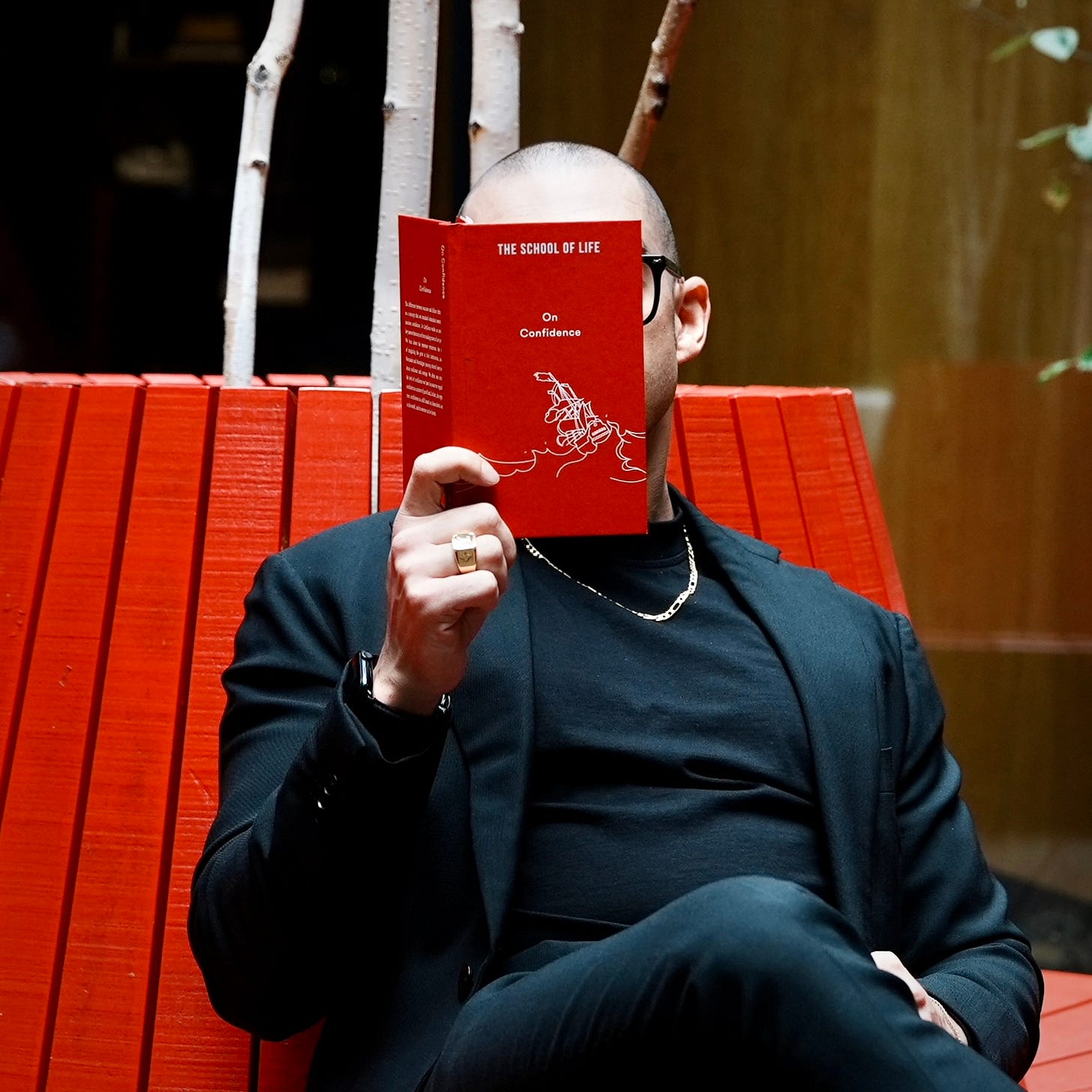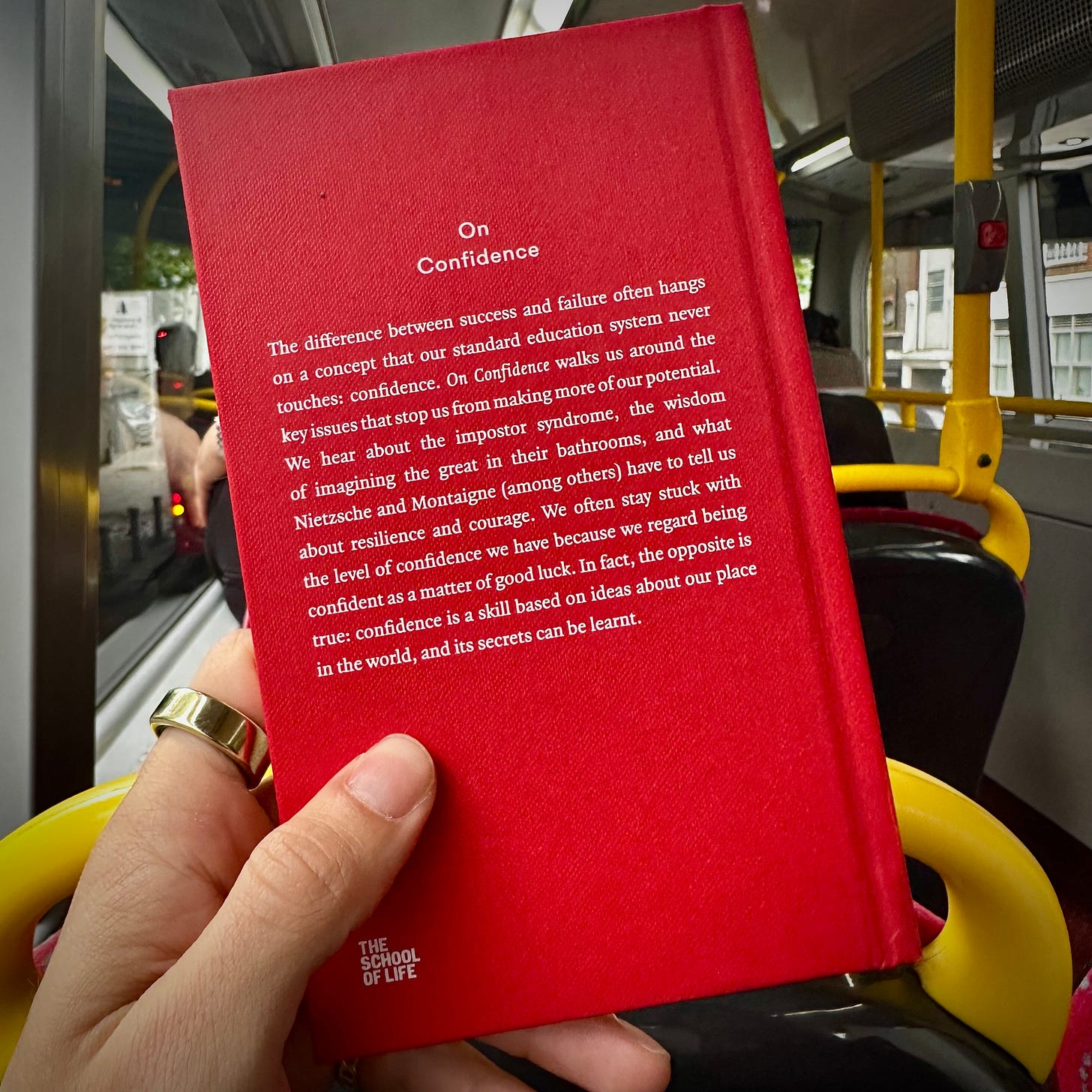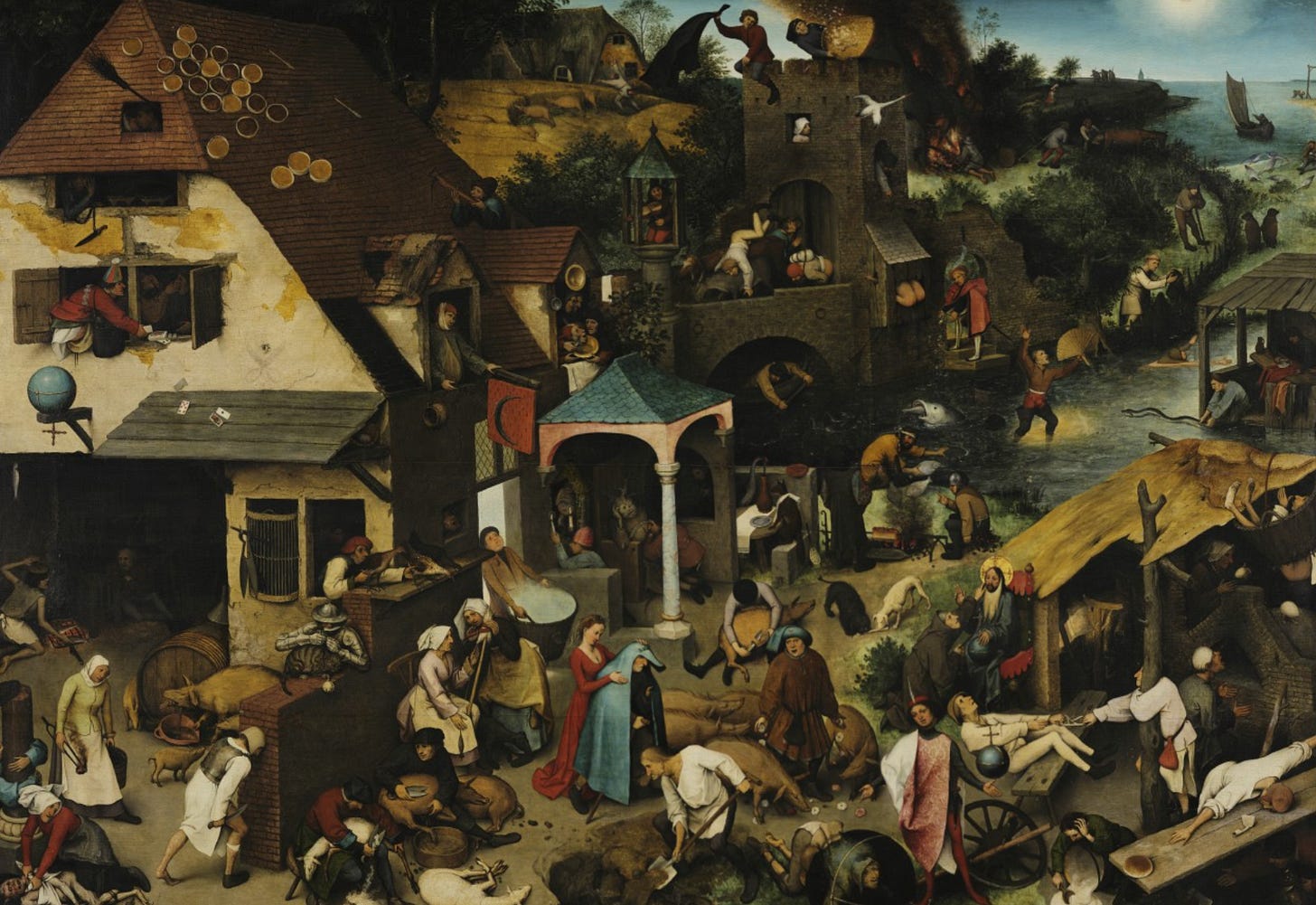It's Thursday evening, and Johann calls us for a weekend meat up in London.
Saturday, at 3 am, we're headed to the airport.
Geographic freedom is, for us, the highest symbol of our lives in Europe. If needed anywhere, we pack our carry-on and jump on a plane or train.
We were lucky to see a beautiful blue sky in London in late September. Prime steaks and lots of fun with our friends Johann and Andrea at CUT Park Lane. Walking around the city, we stopped to think how important it is to meet the people who inspire us.
Associate with those who will make a better person of you. Welcome those whom you yourself can improve. The process is mutual; for people learn while they teach.
— Seneca
Sharing life and creating memories with people who share similar virtues and inspire you to become a better person is foundational for a good life.
Remember to cherish friends and connections this week.
On confidence
Last weekend in London, I stayed for the first time at a CitizenM hotel, a break from my IHG streak. I was surprised by having School of Life books in the room.
Real confidence is threefold: what we have, what we can do, and who we are. It's cultivated through knowledge, practice, and self-acceptance, allowing us to trust our intuition and approach life's challenges with a calm, non-reactive demeanor.
Three types of confidence
Confidence comes from things such as shelter, savings, basic needs, and desires. Things can be taken so that confidence can be shaken.
Confidence from the ability to do things and get things done, the ability to exercise, lead projects, sit alone in a room, and plan an adventure. Accidents happen, one day you can the other you can't. Confidence can be taken.
Confidence from self, confidence in who you are. When you believe you will always figure it out, that you can't change the wave, but you can surf it — that confidence can only be taken by death.
Confidence is often misunderstood as unwavering self-assurance. However, as Erasmus argued in “In Praise of Folly,” true confidence comes from accepting our imperfections. “No human is wise at all times or is without their blind side.”
I have been a fool before, and I will be a fool again. Bruegel's “Dutch Proverbs” visually captures this idea - a chaotic canvas where everyone engages in foolish acts. This perspective should free us from the paralyzing fear of embarrassment. It's normal to feel foolish the first time we try something new. Practice makes perfect; practice builds confidence.
Real confidence is threefold: what we have, what we can do, and who we are.
I'll finish another book on the topic, then remix it all together for an evergreen scheduled for H1 2025 at positivejohn.com
Watch School of Life's How To Be Confident for another angle on their book.














